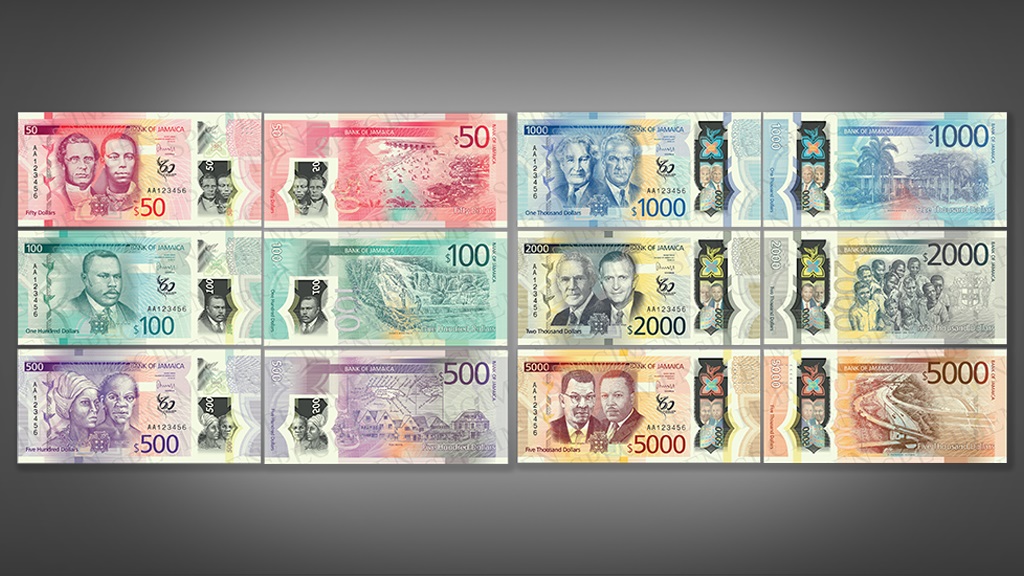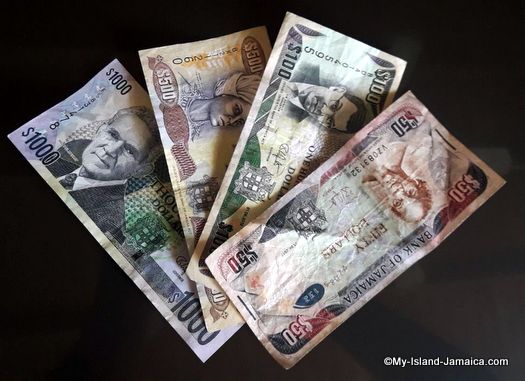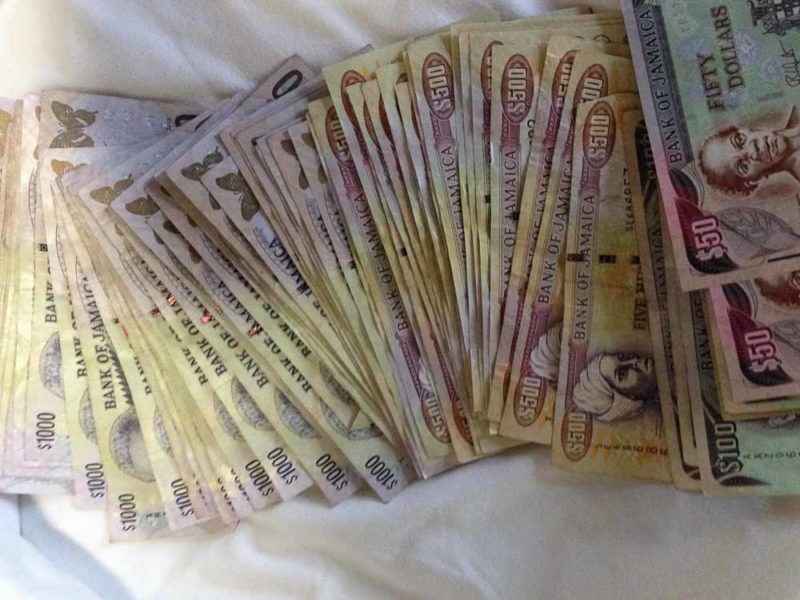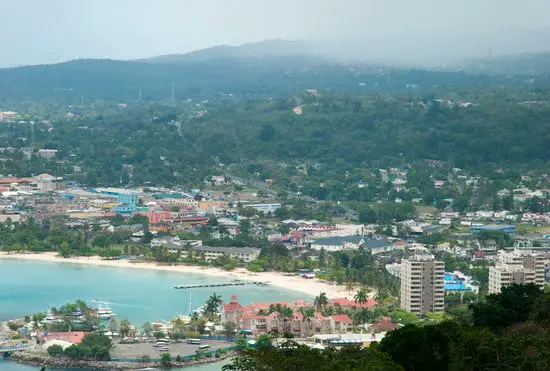Are you planning a trip to Jamaica and wondering how much money you’ll need? Don’t worry, we’ve got you covered! In this blog post, we’ll tell you how much one thousand US dollars is worth in Jamaican currency. So read on to find out just how far your money will go in the Caribbean!
Introduction

The Jamaican Dollar is the official currency of Jamaica. It was introduced in 1968 and replaced the Jamaican Pound as the island’s currency. The Jamaican Dollar is divided into 100 cents and is denoted by the symbol J$. Bills come in denominations of $1000, $500, $100, $50, $20, $10 and coins come in denominations of 50 cents and 25 cents.
The Jamaican Dollar is currently pegged to the US Dollar at a rate of 1 USD = 100 JMD. This means that for every US Dollar you exchange for Jamaican Dollars you will receive 100 JMD. Exchange rates for other currencies can be found online or through your local bank or money transfer service provider.
The introduction of the Jamaican Dollar has made it easier for people from all over the world to do business with Jamaica as transactions are now easier to process due to its consistent exchange rate with other international currencies. This has also made it easier for people travelling from overseas to spend their holiday money without having to worry about exchange rates or carrying large amounts of cash on them when travelling.
Exchange Rates

Exchange rates help us to determine how much one currency is worth in relation to another. Exchange rates are determined in the foreign exchange market, which is open 24 hours a day and five days a week. The value of a currency is determined by its supply and demand, as well as by factors such as political stability, economic strength, and even natural disasters.
Exchange rates can have a strong influence on international trade, investment flows, and tourism. A country’s currency can appreciate or depreciate depending on the economic conditions of the country. A strong economy usually leads to an appreciation of the currency against other currencies, while an unstable economy can lead to a depreciation of the currency.
The most commonly-used exchange rate system is called “floating exchange rate” and it reflects market forces at work. This means that when one country’s currency appreciates or depreciates against another, it affects all other countries that use that same currency pair in their transactions with each other. For example, when the US dollar strengthens against the Euro, it affects all countries that use both currencies for international payments.
Understanding exchange rates helps businesses make better decisions about pricing products in different markets around the world and trading with foreign partners. It also allows individuals to make informed decisions about how much they should be paying for goods or services purchased abroad or when travelling overseas.
Why Does the Exchange Rate Change?
The exchange rate of a currency is determined by the demand for and supply of that currency compared to other currencies. Exchange rates are constantly fluctuating due to changes in economic conditions, government policies and even market psychology. Here are some of the most common reasons why exchange rates can change:
1. Interest Rates – Interest rate changes in one country can cause shifts in capital flows as investors seek higher returns. When interest rates rise in one country, investors will move their money there, driving up demand for that currency and causing its value to increase relative to other currencies.
2. Inflation – Inflation affects an economy’s purchasing power and therefore its exchange rate with other countries. Countries with high inflation tend to have weaker exchange rates compared to countries with low inflation because their buying power is reduced relative to other countries when prices increase more rapidly over time.
3. Economic Growth – Stronger economic growth typically allows a country’s currency to appreciate against other currencies since there is increased demand for that country’s goods and services from abroad, which drives up its exports. This causes foreigners to buy more of the stronger currency, thus increasing its value compared to others on the foreign exchange market.
4. Government Policies – Governments may also intervene directly in their own currency markets or impose trade restrictions (such as tariffs) on foreign imports in order to protect domestic industries or help reduce current account deficits (the balance between exports and imports). These policies can also affect exchange rates either positively or negatively depending on how they are received by international traders or governments around the world.
5. Speculation – Finally, speculation plays an important role in influencing short-term fluctuations in exchange rates because traders often
Transferring Money to Jamaica

Transferring money to Jamaica has never been easier! With the help of online money transfer services, you can now securely and quickly send money to your friends and family in Jamaica. Whether you’re sending a one-off payment or scheduling recurring payments, you can rest assured that your funds will arrive safely and quickly.
The process of transferring money to Jamaica is simple and straightforward. You just need to select a reliable service provider, create an account, enter the relevant details such as the recipient’s name and bank information, enter the amount you want to send, choose your preferred payment method (debit or credit card), pay for the transfer fee (if applicable), and submit.
Another benefit of transferring money to Jamaica is that it offers competitive exchange rates. The current rate in Jamaican Dollar (JMD) for 1 US Dollar (USD) is roughly 6 JMD per USD. This means you can get more bang for your buck when transferring funds from the US or other countries with strong currencies compared to the Jamaican Dollar. Additionally, some online service providers offer special discounts on transfers which could save you even more money on top of already competitive exchange rates.
Once you’ve made your payment, most services will provide tracking information so that both sender and receiver can monitor where their funds are at all times until they reach their destination. Depending on how urgently the funds are needed by your recipient in Jamaica, different delivery speeds such as same-day or next-day transfers are also available with some service providers at an additional cost if required.
Overall, transferring money to Jamaica is easy and secure with online services like Western Union, MoneyGram or Remitly – saving time
Using Your Credit Card in Jamaica
Using your credit card in Jamaica can be a great way to make purchases and access cash. The popular payment methods accepted include American Express, Diners Club, MasterCard and Visa. Many Jamaican ATMs accept international bank cards and many banks offer credit cards with reasonable currency exchange rates.
When travelling to Jamaica, it is important to note that the local currency is the Jamaican dollar which is far less valuable than the US dollar. To avoid extra fees and charges, you should check with your credit or debit card issuer before using their cards in Jamaica. Credit card companies may charge foreign transaction fees for purchases made in Jamaica.
When shopping or dining out in Jamaica, most establishments will accept payment in either Jamaican dollars or US dollars. However, some merchants may only accept one currency so it’s best to ask before making a purchase. Also, if you are withdrawing cash from an ATM be aware that there are daily limits on how much can be withdrawn at once (generally $1,000 USD).
Finally when transferring money into or out of your account from abroad remember that there are usually additional charges associated with this type of transaction; these vary depending on local regulations and the amount being transferred so it’s important to check before committing to any transfers of funds into or out of accounts held in Jamaica.
Currency Conversion Fees
Understanding Currency Conversion Fees is key to making sure your international money transfers and payments are cost-effective. Here’s a quick rundown of what currency conversion fees are and how they work.
Currency conversion fees, also known as foreign exchange (FX) fees, are the costs associated with converting one currency to another. When you make international payments or send money overseas, these fees can add up quickly if you’re not aware of them.
Currency conversion fees come in two forms: direct and indirect. The direct fee is usually a flat rate that is charged by your bank or payment provider for the service of exchanging currencies. This fee can range from 0% to 5%, depending on the provider and type of transaction you’re making.
The indirect fee is the difference between the market rate for exchanging currencies (also known as the interbank rate) and the rate your bank or payment provider offers when you make a transfer or payment in a foreign currency. This difference is often referred to as “the spread”, which can range from 0% to 2%.
When shopping around for an international money transfer or payment provider, it’s important to compare their rates against each other so that you get the best deal possible on your currency conversions. Also look out for any additional hidden charges that may be built into their services – these could include account management fees, wire transfer fees, etc., which could further increase your costs when sending money abroad.
Finding an Exchange Office in Jamaica
Are you planning a trip to Jamaica and need to exchange your currency? Finding an exchange office in Jamaica is easy. Most Jamaican banks have dedicated foreign exchange bureaus that offer competitive rates on foreign currencies. If you’re looking for a reliable and secure way to exchange your money, then using an authorized bank is the way to go.
Another option is to use a local money changer or bureau de change. These businesses are usually located in tourist areas throughout the country and can offer better rates than banks or airport kiosks. However, be sure to check their credentials before exchanging your cash – some shady operators may not be trustworthy.
You can also search online for an exchange office in Jamaica. There are several websites offering currency converters and other services that can help you find the best rate for your currency exchange. Be aware, though, that these sites may not always be up-to-date with the most current rates – so it’s best to double check before making any decisions.
Finally, if you’re visiting Jamaica from abroad, many of the island’s airports have official currency exchanges where you can buy Jamaican dollars at international US dollar prices. Just remember that fees may apply when exchanging cash at these locations – so it’s always worth checking ahead of time!
No matter which option you choose, finding an exchange office in Jamaica is easy – just be sure to compare rates and fees before committing!
Withdrawing Cash from an ATM in Jamaica
Withdrawing cash from an ATM in Jamaica is easy and convenient. With more than 90 Automated Teller Machines (ATMs) located across the country, you can access your funds and account information without any hassle. Before you withdraw cash, be sure to check the foreign exchange rates. The exchange rate for US dollars is 134.84 when withdrawing cash, 149.46 when writing a cheque, and 132.30 when withdrawing both cash and cheque. It’s always best to buy Jamaican dollars before travelling to get the best rate possible. Be aware that some shops frequented mainly by Jamaicans set their prices in Jamaican dollars, so it’s important to have some bills on hand when getting into a taxi or visiting a local market or restaurant. And remember – it’s much better to spend Jamaican dollars instead of US dollars!
Prepaid Travel Cards for Jamaican Vacations
Vacationing in Jamaica is a great way to spend your time and money, and prepaid travel cards can help make the trip even more enjoyable. With a prepaid travel card, you can conveniently access your funds while abroad and avoid the hassle of exchanging currency. Prepaid travel cards are available from several providers and can be loaded with Jamaican Dollars or US Dollars. They are accepted at most ATMs, restaurants, shops, and other locations in Jamaica.
When choosing a prepaid travel card for your Jamaican vacation, consider the fees associated with the card such as ATM withdrawal fees or foreign transaction fees. Check to see if there are limits on how much you can withdraw each day or what type of currency you can use. Also, make sure that the provider has customer service support that is available 24/7 in case of any issues while abroad.
Prepaid travel cards provide an easy way to access funds while traveling in Jamaica without having to worry about carrying large amounts of cash or exchanging currencies when needed. They also offer added security since they can be used only up to the amount loaded onto them – so if they are lost or stolen you don’t have to worry about someone accessing all your funds. With a prepaid travel card for your Jamaican vacation, you will be able to enjoy your trip with peace of mind knowing that all your finances are taken care of!
Paying Bills in Jamaican Dollars
Paying bills in Jamaican dollars is a simple task for anyone doing business, vacationing, or simply sending money to friends and family in Jamaica. The official currency of Jamaica is the Jamaican dollar (JMD), which is comprised of banknotes in denominations of $50, $100, $500, $1000 and coins in denominations of 1 cent and 5 cent. When converting from another currency to JMD it’s important to keep track of exchange rates. For example, one US dollar typically converts to around 153 JMD.
When paying bills in Jamaica, you can use cash or credit cards; however some vendors may not accept one or the other so it’s important to plan ahead. Banks are open Monday through Thursday from 9am-2pm with most closing on Fridays at 1pm; however some banks have additional hours into the evenings and on Saturdays. It’s also possible to pay bills online using a debit card or wire transfer via a bank account.
Overall, paying bills in Jamaican dollars is generally quite straightforward when you know where and how to get the currency you need and what payment options are available for your situation.
Travelling with U.S. Dollars
Travelling with U.S. Dollars is an easy and convenient way to take care of your finances while abroad. The U.S. Dollar is widely accepted around the world, making it a great choice for international travel. Whether you’re visiting family or taking a business trip, the U.S. Dollar can be a great asset to have on hand when travelling abroad.
When travelling with U.S. Dollars, it’s important to be aware of local currency exchange rates and conversion fees from your bank or credit card provider before setting out on your journey. When exchanging currency at banks or currency exchanges, check what the current exchange rate is and find out if there are any additional fees for exchanging money in that country, as this will affect how much money you actually receive in return for your U.S Dollars during the transaction process. It’s also important to note that not all countries accept US Dollars as payment – so make sure you do some research beforehand to determine if US Dollars are accepted in your destination country before leaving home!
For international trips using U.S Dollars, it’s a good idea to bring along some cash in both US dollars and the local currency of your destination country so you can quickly access funds when needed without needing to worry about finding an ATM or exchange office right away when you arrive at your destination city or town – this can be especially helpful if you don’t know where these places are located ahead of time! Lastly, try not to keep all of your money in one place during travel – split up cash into different pockets/bags and store cards separately from each other so that if something were to happen (theft, loss etc
Conclusion
The cost of 1,000 United States Dollars in Jamaican Dollars today is J$153,883.23 according to the “Open Exchange Rates”, compared to yesterday. This means that 1000 US Dollar is worth 152172 Jamaican Dollar. Furthermore, it is estimated that with the current exchange rate of 0.006572 International Currency Exchange, one thousand US Dollars can be converted to 153,856.48 (JMD) today or one hundred fifty-three thousand eight hundred Jamaican Dollars. Finally, users should take into account the additional costs that may arise from conversion fees when converting USD to JMD.
